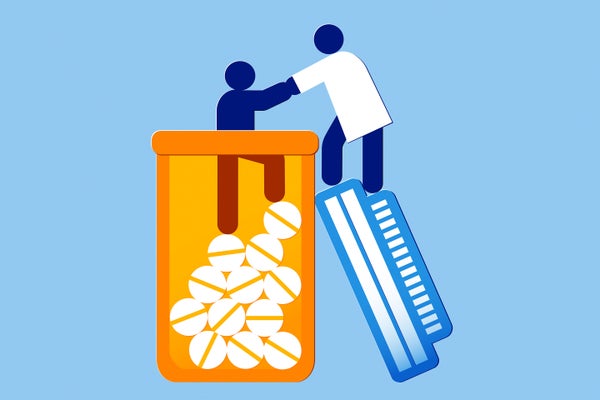October 22, 2024
5 min read
We Need More Meds, Not Beds, to Help People Recovering from Addiction
People recovering from substance use disorders need homes, jobs and medication-centered, quality health care, not just a bed in a residential treatment center
Early on in medical training, one of us cared for Cara, a young woman with opioid addiction who was unhoused and wanted to stop using fentanyl. We started her on methadone—one of the most effective treatments for opioid addiction. But Cara (not her real name) had also been waiting for a bed in a treatment facility for over a week. One of the hospital case managers told the team that getting a rehab bed was Cara’s only chance at a sustained recovery from fentanyl. The case manager noted that while some facilities could be quite strict, structure and accountability were what these patients needed the most.
Every member of this person’s care team—from nurses and social workers to residents and attendings—nodded in agreement. But this later gave us pause. Was it Cara’s only chance at recovery? Would inpatient treatment facilities even accept people like her taking effective medications like methadone or buprenorphine, which some people in health care view as “substituting one drug for another”? Where would she go after completing treatment? And, most importantly, what did Cara actually want?
Politicians, health care providers and the businesses behind addiction treatment are desperately calling for more addiction “treatment beds”—also known as “residential treatment,” “inpatient treatment” or “rehab.” These calls for more beds are occurring nationwide, in cities like Boston and San Francisco (where Governor Gavin Newsom recently promised to build over 10,000 “behavioral health beds”) to more rural parts of the U.S. But building more addiction treatment beds is a stopgap to a more permanent solution.
On supporting science journalism
If you’re enjoying this…
Read the full article here

